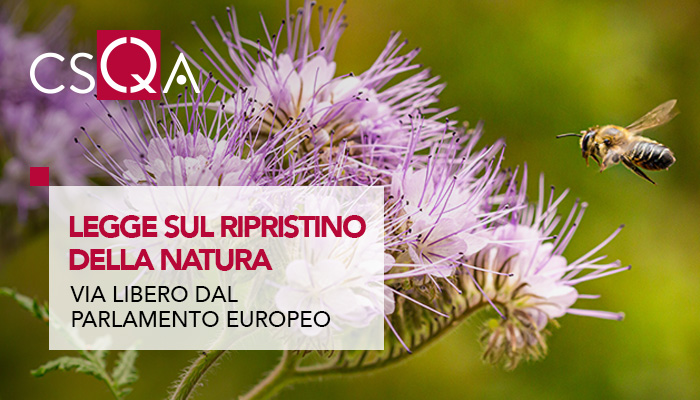 on 12 July 2023, the European Parliament approved the Nature Restoration Law , the proposed Regulation aimed at recovering biodiversity and seriously compromised natural areas , a pillar of the EU Strategy for Biodiversity 2030.
on 12 July 2023, the European Parliament approved the Nature Restoration Law , the proposed Regulation aimed at recovering biodiversity and seriously compromised natural areas , a pillar of the EU Strategy for Biodiversity 2030.The objective of the text is to implement the commitments that the EU has made: to restore at least 20% of degraded natural habitats by 2030, and 100% by 2050 .
These are legally binding objectives which include, among others, renaturalization, replanting of trees, greening of cities, remediation of pollution.
Around €100 billion is allocated to biodiversity and restoration under the multiannual financial framework. The Commission estimates that the economic benefits of restoring peat bogs, fens, forests, heaths and undergrowth, meadows, rivers, lakes, marine and alluvial habitats and coastal wetlands are eight times greater than the costs.
The basis of the text voted by the Eurochamber envisaged several amendments, including the one which provides for the exclusion of agricultural ecosystems in the application of the proposed regulation.
MEPs stress that restoring ecosystems is key to combating climate change and biodiversity loss, and reduces food security risks.
Furthermore, they highlight that the bill does not impose the creation of new protected areas in the EU or block the construction of new infrastructure for renewable energy : a new article has been approved which underlines how such plants are largely in the public interest .
The green light from Parliament refers the proposal for a Regulation to the Environment Commission: it is a formal passage that defines the negotiating position of the Eurochamber in view of the trilogues on the text with the Council and the Commission. Indeed, the final text of the law will be agreed after negotiations between representatives of the European Parliament, national governments and the European Commission.
Goals for 2030 and economic resources
Parliament stresses that the new law must contribute to the achievement of the EU's international commitments, in particular those set out in the Kunming-Montreal United Nations Global Biodiversity Framework . MEPs back the Commission's proposal to implement nature restoration measures affecting at least 20% of all land and marine areas in the EU by 2030.Parliament proposes that the legislation only apply once the Commission has provided data on the conditions necessary to guarantee long-term food security and after EU countries have quantified the areas to be restored to achieve the objectives for each type of habitat. Parliament also wants to introduce the possibility to defer recovery targets in case of exceptional socio-economic consequences.
Within 12 months of the entry into force of the Regulation, the Commission will have to assess the possible gap between the financial needs of the restoration and the EU funding available and study solutions to fill this gap, in particular through a dedicated EU instrument. (Source: Valentina Oldani, https://www.foodandtec.com/ )